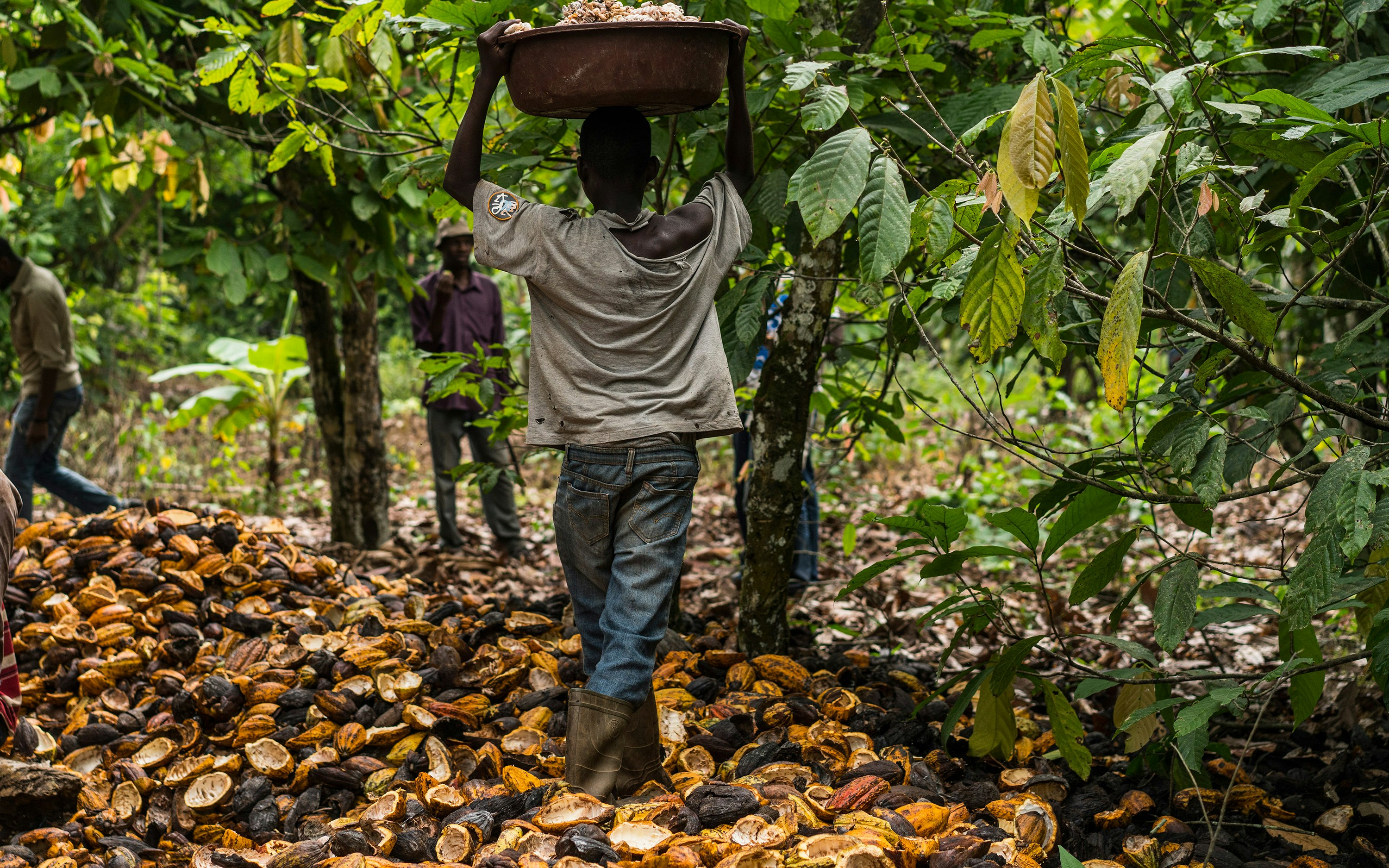Child Slavery Suit before the U.S. Supreme Court to Decide U.S. Companies' Liability in Human Rights Abuses
WASHINGTON D.C.—Today, the U.S. Supreme Court heard oral arguments in the consolidated case of Nestlé USA and Cargill v. Doe. The case stems from two lawsuits brought by former child slaves who allege that they were trafficked from Mali to work on cacao farms in Côte d’Ivoire, where they labored without pay for twelve to fourteen hours a day, were provided minimal food and shelter, and subjected to physical abuse. The children allege that the U.S. corporations who are the defendants in the case aided and abetted these abusive practices.
The Ninth Circuit ruled that federal courts have jurisdiction to hear claims under the 1789 Alien Tort Statute (ATS) regarding U.S. corporations aiding and abetting child slavery and child trafficking. The Supreme Court will now decide whether domestic corporations are exempt from suit under the ATS and whether corporate activity in the U.S. can satisfy the test for aiding and abetting liability.
Over 1.5 million children are engaged in harvesting cocoa in Côte d’Ivoire and Ghana, which together supply about 70% of the world’s cocoa beans. As cocoa production has risen over the past decade, the proportion of children between the ages of five and 17 who work on cocoa farms in these countries has increased by 14 percentage points.
The Open Society Policy Center, an entity that is part of the Open Society network and whose work aligns with the Open Society Justice Initiative's mission, is co-counsel for twenty-one members of U.S. Congress who filed an amicus curiae brief in the case. The brief was filed to ensure that the Court is better informed about the policy choices Congress has made to eliminate the scourge of modern-day slavery wherever it occurs.
The brief provides the Court with a record of Congressional work to combat modern-day slavery, including the creation of criminal liability for human trafficking, including when it occurs abroad, as well as the enactment of a coextensive civil remedy in the Trafficking Victims Protection Act and its Reauthorizations (TVPRA). The brief also discusses the scope of this civil remedy, including its application to corporations who benefit from forced labor and labor trafficking.
The brief also explains measures taken by Congress with regard to the Executive Branch, such as mandating the State Department’s annual Trafficking in Persons Report, a diplomatic tool to engage foreign governments on combatting human trafficking, and the Department of Labor's annual Findings on the Worst Forms of Child Labor, which highlights child labor practices in U.S. trade beneficiary countries.
The Congressional amicus brief for Nestle USA, Inc. and Cargill, Inc. v. Doe can be found here.
A full list of amici in the cases supporting plaintiffs and additional details can be found here.
